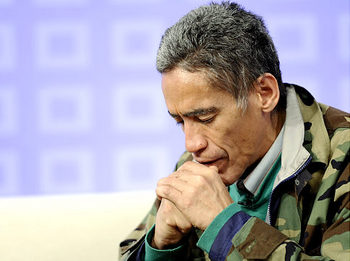In the last post addressing a different way to think about poverty, Can We Really Help the Poor, I left stating that the nature of poverty is fundamentally spiritual and relational. These ideas come from Bryant Myers book, Walking with the Poor, this post is Part Two. For an academic, Bryant reflects on some important issues regarding the spiritual causes of poverty:
“Money is spent on charms for protection and time is lost to feast days, all in an attempt to mange these power relationships. Technical improvements are refused for fear of the reaction of ancestors or the spirit world. Furthermore, while there are lost of references to oppression, deceit, malfeasance, corruption, violence, fatalism, alcohol, and broken and unjust relationships in the development literature, the spiritual dimension seldom surfaces in the explanatory schemes.” (p. 86)
I think it’s important to note that Biblically, spiritual issues are at the forefront of most things happening in our world. In the 21st century, they tend to be the last things considered. Particularly for people in poverty, the spiritual realm holds one of the main keys to poverty entrapment. Having just been in Haiti, I can tell you first hand that Voodoo enslaves and impoverishes most of the Haitian people.
“Social action is confrontation with the powers that be. We are, ultimately, not battling against flesh and blood, nor merely dismantling unjust social systems; we are confronting the powers in their cosmic and social dimensions.” (Maggay, Melba. Transforming Society. London: 1994, p. 82)
Second is the nature of poverty is fundamentally relational. “Poverty is a result of relationships that do not work, that are not just, that are not for life, that are not harmonious or enjoyable. Poverty is the absence of shalom in all its meanings.” (p. 87)
The aspect of shalom has been central in almost every book we’ve read. The idea means completeness, wholeness, health, peace, welfare, safety soundness, tranquility, prosperity, perfectness, fullness, rest, harmony, the absence of agitation or discord. All in all, complete wholeness and the abundant life Jesus promises in John 10:10.
This is an important point for anyone working in development to understand. Until we can affect change in the relational structures, as soon as we leave ‘the mission field’ things snap right back to the way they were. Much like a rubber band returning to its original shape.
“Why are the poor denied access to social power? What is at the root of the web of lies and disempowerment that results? Why are there constraints to growth with a a group of people standing behind each limitation and restriction? Because of deceptive and dominating relationships, because we are unable to love God and neighbor, because of sin.”
Spiritual and relational. Oppressive issues every single person engaged in poverty relief must consider and devise a strategy against.
“at the center of this relational understanding of poverty is the idea of the poor not knowing who they are or the reason for which they were created. When people believe they are less than human, without the brains, strength, and personhood to contribute to their own well-being or that of others, their understanding of who they are is marred. Similarly, when the poor do not believe that they have anything to contribute, or that they cannot be productive, their understanding of their vocation is distorted as well. With marred identities and distorted vocations, the poor cannot play their proper relational role in the world, either within themselves or with those around them.” (p. 87-88)
Click here to subscribe to Red Letters. Click here to follow Tom Davis on Twitter.

